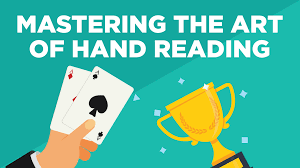15 Foolproof Strategies For Texas Hold Em
If you’re tired and frustrated with your current losses, these strategies will give you a little edge over the competition.
Sure, you can still get that winning streak back with some practice. Just a word of advice, though. Do not believe any systems that claim to make you a ‘wise’ player. It’s easy to fall into the traps set by other players, so don’t even waste your time trying to pull one off.

The fact is that there are lots of ways to lose at Texas Hold Em. Bad beats are all over the place. Turrets, if you can call them that, can suck your bankroll dry rather quick. There are lots of fish to chase around for a while and pick up easy wins.
All those little rules, limits, strategies and techniques can all be used to lose rather quickly. If you think that you are really tight and have the discipline to stick to only the rules while you play, you will be better off in the long run.
The best strategies for Texas Hold Em can be outlined into little sets of rules. They can’t be hard to remember, so they can be used to make quick decisions. A good strategy is to start with the top rule of thumb andRaise printing at every table turn. It doesn’t matter if you have a set of plastic fish on a piece of plastic in front of you or on the computer screen; once you stick it to the middle of the board, you will have a new multi-table strategy.
That’s a good rule of thumb. Don’t change it. It works.Rewards the player and the game. If you remember this, when you get that exciting hand with the nuts to someone, you will know that you did indeed have the nuts and could recoup your initial stake rather quickly. It’s a great feeling to know you made the right move and folded, even though you initially had a huge advantage.
Another good strategy is to work out the flop. If you are in pre-flop form with a draw, you can safely check to a player who may raise or otherwise take a stab at the pot. If you are in a pot live, you can also call the raise, if it’s cheaply. The latter is risky, but if you’re playing online, there’s a chance that nobody will raise and you can draw a hand out of position.
You can also take it to the river. If you are in position and everybody checks, you should bet out. Why? The same reason as you would bet in position. If you are on the button, and everybody checks through to you, a bet should be there to thin the field and hopefully get a call from a player with an inferior hand.
If you are playing online, and card rooms have 1 minute minimums, that’s fine. One minute may equal 30 hands for an average player, so make sure you have time to evaluate your hand before you act.
Another strategy, which goes back to the first tip, is to limp in, or call in hands when you’re first in. Why? If you see a flop, you want to make a continuation bet (whether on the flop or turn) to see if you land a set. You can also check the flop if you didn’t hit, to “see” the flop. C-Bets are also a powerful play, because they can represent a made hand, a draw, and a pair. If you make a big raise, hopefully you will get some more money in the pot to pay for your C-Bet.
This doesn’t always work, but it’s another way to look at making a play without a hand. The danger is, if you don’t make a hand, someone else may make a better one, and you won’t know if you can bluff or not.
This is also another reason to not chase draws. You may land a card on the turn you were trying to miss, and end up having to say Never more cards!
As I said earlier, we come back to KQ mostly. This starting hand is a favorite of many players, because it’s strong and has potential to win. Yes, it does need to connect to the flop, but it can win so many different ways.
First, it wins heads-up. If you flop AQ or something like that, and your opponent hasn’t connected with a set, you can get a big portion of your stack in the middle stack, and make a large continuation bet. You will often scare away the drawing hands, unless your opponent has a monster. You will often win the blinds, unless your opponent has a monster.
Playing KQ depends on your image of your opponent.